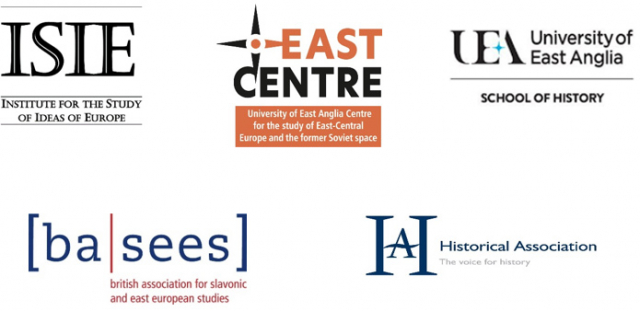Call for Papers: Ideas of Europe and Images of Russia
XV Annual Conference of the Research Network on the History of Idea of Europe

Call for Papers: Ideas of Europe and Images of Russia: From the Eighteenth Century to the Present
XV Annual Conference of the Research Network on the History of Idea of Europe
University of East Anglia, School of History – Norwich
19-21 June 2024
The geo-cultural relationship between Europe and Russia has been a source of intrigue for scholars, historians, philosophers, novelists, and politicians since at least the late seventeenth century. Catherine the Great envisioned Russia as a blend of ‘European sophistication’ and ‘Slavonic values’, while Fyodor Dostoevsky saw the Russian soul as a ‘complex mosaic, woven with threads of European rationality and Asian mysticism’. The debate on Russia’s belonging to Europe persisted among Russian elites, with European observers often viewing Russia as a periphery to civilise or as ‘the Other’. In the nineteenth century, views varied; some, like Elisée Reclus, considered the Russian Empire a place of despotism, contrasting it with civilised Europe. Friedrich Nietzsche, on the other hand, believed that Russia could regenerate a decadent Europe. The First World War and the events of 1917 led some to argue Russia had returned to ‘Asiatic’ barbarism, ideas that kept influencing Cold War projects of European unification. The fall of the Berlin Wall paved the path to a novel phase in the political and intellectual relationship between Europe and the Soviet Union/Russia, when key political leaders such as François Mitterrand and Mikhail Gorbachev could speak of a ‘common European house’ – a conception that appears to have been totally shattered under the Putin regime with its full-scale invasion of Ukraine in February 2022.
Clearly, (Western) European perceptions of and discourses about Russia tell us much more about Europe’s self-perceptions (and delusions) than about Russia itself. And the same holds true for Russian views about Europe. Underlying such a complex identity-formation processes is an often troublesome intellectual dialogue between Europe and Russia, between two closely entwined entities. One of the purposes of this international conference, organised by the East Centre and the Institute for the Study of Ideas of Europe at the University of East Anglia in cooperation with the Research Network on the History of the Idea of Europe, is to shed light on such a dialogue, discern its main elements, and its untold assumptions and underlying prejudices. The overall aim is to examine how images of Europe and discussions about Russian identity have interacted and influenced each other. Embracing a multidisciplinary and interdisciplinary approach, the conference aims to engage intellectual, cultural, social, and art historians as well as literary scholars and political theorists.
Topics of discussion may include, but are not limited to:
- The history of Europeanization efforts in the Russian Empire and the Soviet Union
- Religion, the arts, and images of Europe and Russia
- The cultural and intellectual history of geopolitics and alliance-making in relation to Russia and Europe
- Europeanism and Pan-Slavism
- The Soviet Union and projects of European unification
- Eurasianism and the European Far Right
- The Western labour movement, the USSR, and Europe
- Peace movements, the USSR, and alternative projects of European unification
- Perceptions of Europe and Europeanness among minority groups and nationalities (Georgians, Ukrainians, Jews, etc…) of the Russian Empire/USSR
- Russian political emigration and notions of Europe
- The impact of the Russo-Ukrainian War on conceptions of Europe
We invite scholars to explore the evolving relationship between European and Russian identities. If you would like to present a paper (c. 15 minutes), please send an abstract (max. 300 words and in English) with a title and a short biography by 25 March 2024 to Dr Matthew D’Auria (m.dauria@uea.ac.uk) or to Dr Jan Vermeiren (j.vermeiren@uea.ac.uk) or to Professor Matthias Neumann (m.neumann@uea.ac.uk). Please note that the working language will be English.
There will be no fees for participating. Limited funding is available, although preference will be given to non-tenured scholars.
It is expected that a selection of the papers, duly revised and lengthened, will be published as a special issue of History: The Journal of the Historical Association.

